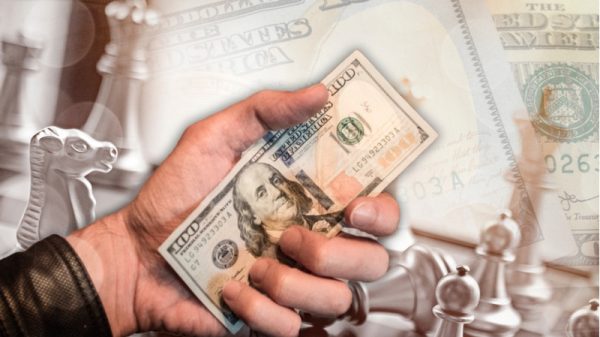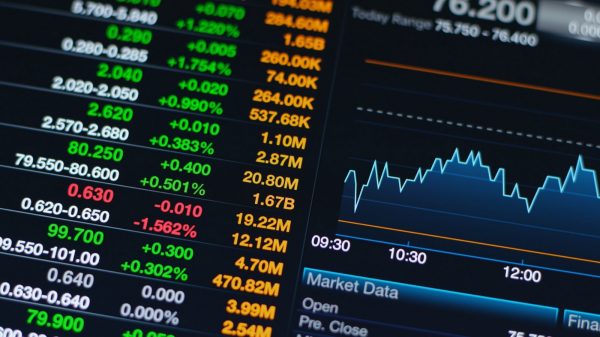Donald Trump and his allies have increasingly rallied around an explanation for his lopsided debate loss on Tuesday night: the lamestream media.
ABC News moderators David Muir and Linsey Davis’s move to fact-check Trump on a few occasions has engendered the most pushback. Trump and his allies have pitched the event as being “three on one” rather than a head-to-head clash with Vice President Kamala Harris. Even some conservative Trump critics have taken some issue, suggesting Harris should have been fact-checked, too.
It’s a difficult subject, and many moderators — like CNN’s in June — choose not to inject themselves in this way. For those interested in the debate over debate fact-checking, I’d point you to Washington Post Fact Checker Glenn Kessler’s thoughtful thread. (He correctly notes that there is no comparison between the amount of misinformation Trump puts out and that of Harris. And Muir’s and Davis’s fact checks avoided some pitfalls from the past.)
The early reviews of the moderators are now in. And at the moment, it seems unlikely this will help Trump too much as he tries to explain away the debate.
A post-debate YouGov poll found that registered voters said by double digits that the moderators were “fair and unbiased.” While 43 percent said that, 29 percent said they were biased in Harris’s favor, and 4 percent said they were biased in Trump’s favor. There was a big partisan split, with 55 percent of Republicans saying the moderators were biased in Harris’s favor.
Those aren’t resounding numbers for the moderators, and many more voters felt that the moderators favored Harris than Trump. But those caveats deserve context.
The first thing to note is that this question was asked of all registered voters — not just debate-watchers. Many who offered no opinion might not have seen the debate. A clear majority of those offering an opinion said the moderators were “fair and unbiased,” and 6 in 10 chose an option other than that they were biased in Harris’s favor.
The other main point is that, while Republicans clearly saw bias, that’s largely baked in to such events at this point.
Republicans have for years — decades — perceived the mainstream media as being biased against their side, to the point where a Reuters/Ipsos poll in July showed 70 percent of Republicans agreed with the statement, “The mainstream media is biased and should be punished.”
And the new poll numbers are in line with how Republicans have responded to debates for years, as historic YouGov polling shows.
After the first debate between Trump and Hillary Clinton in 2016, 6 in 10 Republicans disapproved of NBC anchor Lester Holt’s moderating. After another debate, three-quarters rated CNN’s Anderson Cooper and Martha Raddatz as only “fair” or “poor.” (Third-debate moderator Chris Wallace, then of Fox News, was the only moderator to get strong, bipartisan marks that year.)
By 2020, three-quarters of Republicans rated USA Today’s Susan Page as “fair” or “poor.” And after a particularly unwieldy debate, 8 in 10 called Wallace’s performance “fair” or “poor” — including a majority that said it was “poor.”
Perhaps the biggest clash between Trump and a debate moderator, though, came nine years ago — shortly after Trump launched his first campaign. Then-Fox News host Megyn Kelly asked Trump some very tough questions at a GOP primary debate, including starting the debate by invoking his past disparaging remarks about women. (Trump went on to say Kelly had “blood coming out of her wherever.”)
Trump wasn’t terribly popular with Republicans yet at this point, with only about half reviewing him favorably. But YouGov polling showed Republicans sided with him over the Fox News host.
These questions are all different from those asking whether the moderators were biased, and there are some nuances within them. But it’s evident that large numbers of Republicans more often than not take issue with debate moderators — even when there isn’t the same degree of pushback after the debate as there is now. That’s not to say anybody’s opinion is wrong; it’s just that this is typical.
Indeed, there’s plenty of evidence that Republicans appear predisposed to object. Polling last decade showed more than 7 in 10 Republicans went into debates anticipating bias against their side. And a 2016 YouGov poll showed Republicans said 52-30 that they don’t want moderators to fact-check the candidates. (By contrast, both Democrats and independents did want fact-checking.)
We do have one poll in which the exact same question was asked. It came after the June 27 debate between Trump and President Joe Biden, and relatively few people saw bias. YouGov polling showed 10 percent overall and 21 percent of Republicans thought CNN’s moderators were biased against Trump.
Of course, this was after a debate that not only involved no fact-checking, but also was a rout for Trump. There wasn’t really much to object to. And yet, nearly half as many Republicans saw bias (21 percent) as saw fairness and balance (44 percent).
The other key thing to note here is that, while most Republicans saw bias against Trump in Tuesday’s moderation, a significant number didn’t. Of those offering an opinion, about 3 in 10 didn’t perceive bias against Trump. If it was so evident that he was being railroaded, then you might expect a stronger response.
More negative responses could still come, as Trump and his allies continue to press the case. And if nothing else, the backlash could have a chilling effect on future moderators who might inject themselves into the debate as ABC’s did.



























